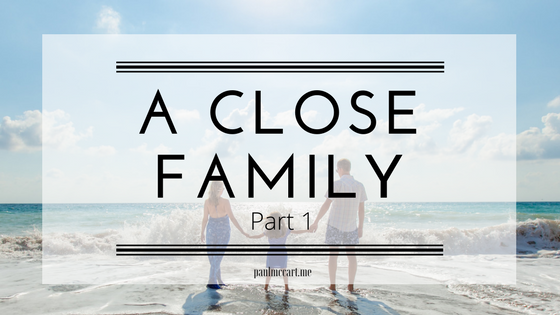Believe it or not, there is a specific “glue” that holds a family together in strength. Just because we are connected by birth or through adoption doesn’t automatically mean that we have what it takes to be a close family. We know this because all of us have experienced the reality that family members don’t always get along. We argue. We can annoy one another. We can be insensitive to each other.
This being the case, companies have been coming out with products for some time to help families deal with the tensions that they face. Here’s one that’s been out for over a decade but is still a favorite:
Families don’t always get along and unfortunately, there isn’t a family survival kit that we can purchase to solve all of our challenges to get along. Even if there were a solution like the kit in the video, it would only delay the inevitable anyway. We would still need to genuinely relate to one another on some level. As families, we still need to function and hopefully, not just function but flourish. The way we flourish, and stay close to one another, is by making sure that we’re applying the glue that’s necessary. So, what is that glue?

Love is the glue that allows families to flourish and be close to one another.
Love is what we need not just get along but to really help one another become all God intends. Forest Gump said “I’m not a smart man, but I know what love is”. Yet, what’s tragic is that many people are not like Forest Gump. They don’t know what love is. They falsely believe that love is only romance, when in reality, love is a decision. They haven’t learned that love is a choice.
Love is choosing to behave in a certain way towards another person.
This is taught all throughout the Bible. For example, we love Jesus when we choose to obey his commands.
Jesus replied, “Anyone who loves me will obey my teaching. My Father will love them, and we will come to them and make our home with them. – John 14:23
We love each other when we choose to be patient, kind, and so on towards another person, just as it says in 1 Corinthians 13.
Love is patient, love is kind. It does not envy, it does not boast, it is not proud. It does not dishonor others, it is not self-seeking, it is not easily angered, it keeps no record of wrongs. Love does not delight in evil but rejoices with the truth. It always protects, always trusts, always hopes, always perseveres. – 1 Corinthians 13:4-7
Love is more than feelings. It is about making the decision to live in certain ways – good ways – God defined ways – towards one another.
While many people still need to learn this truth, many already have learned this truth and yet, it’s still not enough. Fracturing still occurs in families where this truth has been learned and one reason is because family members haven’t learned to speak each other’s individual love languages.
Dr. Gary Chapman is a counselor and author of numerous books but his most famous is “The Five Love Languages.” In this book, he writes about what he discovered after pastoring and counseling couples for over three decades.
Basically, what Dr. Chapman points out is that each person has a primary way in which they feel loved and these expressions of love fall into five main categories, which are:
- Words of Affirmation
- Quality Time
- Receiving Gifts
- Acts of Service
- Physical Touch
Now, what’s important to know about this is that many difficulties in marriages, and families, are not the result of a lack of love, but instead it’s not communicating it in ways that the other person primarily needs. When we don’t communicate in the other person’s primary love language, we don’t fill what he calls the “love tank” of the other person.
For example, a husband may buy his wife gifts all the time because he thinks this will show love towards his wife. The reason he may think this is because he learned it from his parents or that’s just the way he feels loved. Therefore, he assumes that’s how his wife feels loved. But if his wife’s love language is not receiving gifts but quality time, and he is not giving that to her, his wife’s love tank will still be empty and they will face problems over time.
The good news is that when learn to speak in the love language of our spouse, and children, it radically impacts the relationships in a profoundly positive way. As Dr. Chapman asserts, we need to discover the love languages of the members of our family if we want to be effective communicators of love. Dr. Chapman has been helping marriages and families with these insights for over 20 years now, giving him prime experience.
Therefore, we need to learn each other’s love language and become experts at it. Towards this end, I would encourage you to read the book. Don’t just jot down the five categories and focus on them on your own (which is definitely better than not doing anything) but get into the content. Dig deeper because love is the glue we need, and when we learn how to better apply the glue, the stronger and closer our families will be. Plus, the good news about learning these love languages is that everyone can become experts at them because again, love is a choice.
Now, I have to tell you that as I have thought about this, a question came to my mind, and it concerns our willingness to make the choice to love. Over time, because we are faulty human beings, whose love tanks can become empty, we can lose that willingness. We can lose the motivation to choose to love. So, the question that came to my mind was, “How do we continue to choose to love?”
In part 2 of “A Close Family,” I will answer this question.

